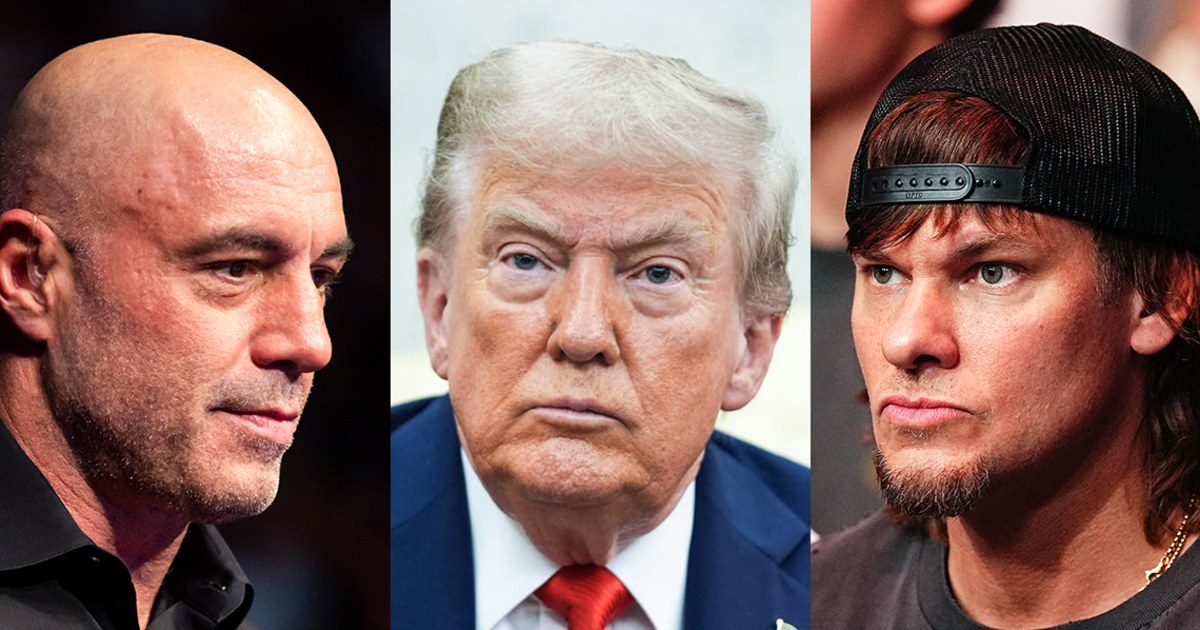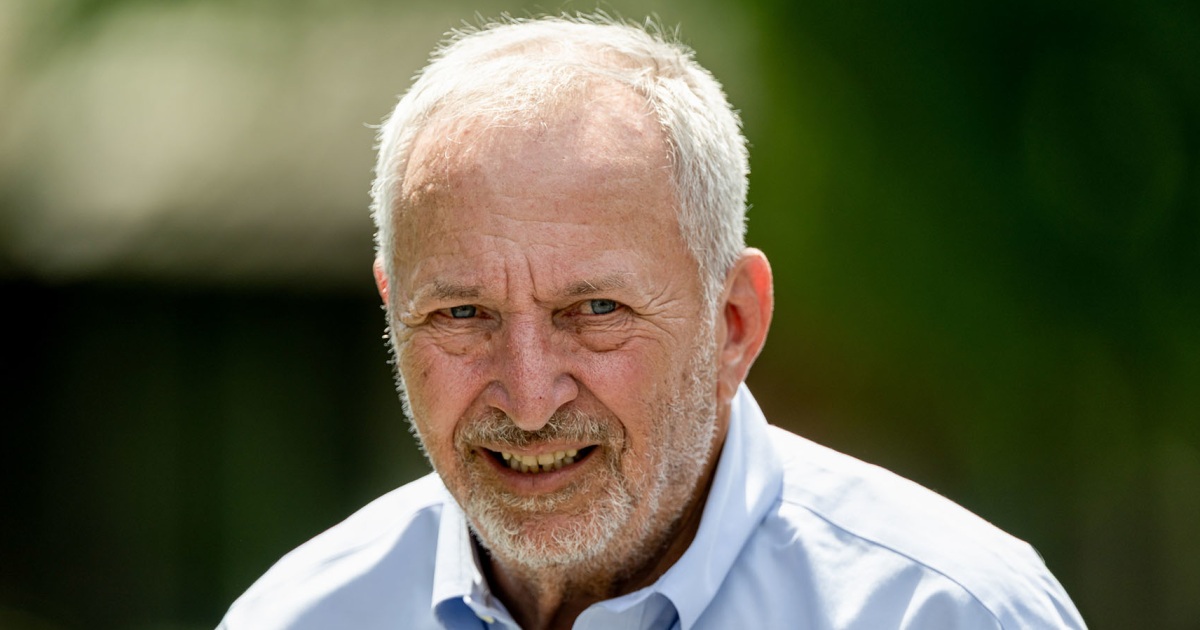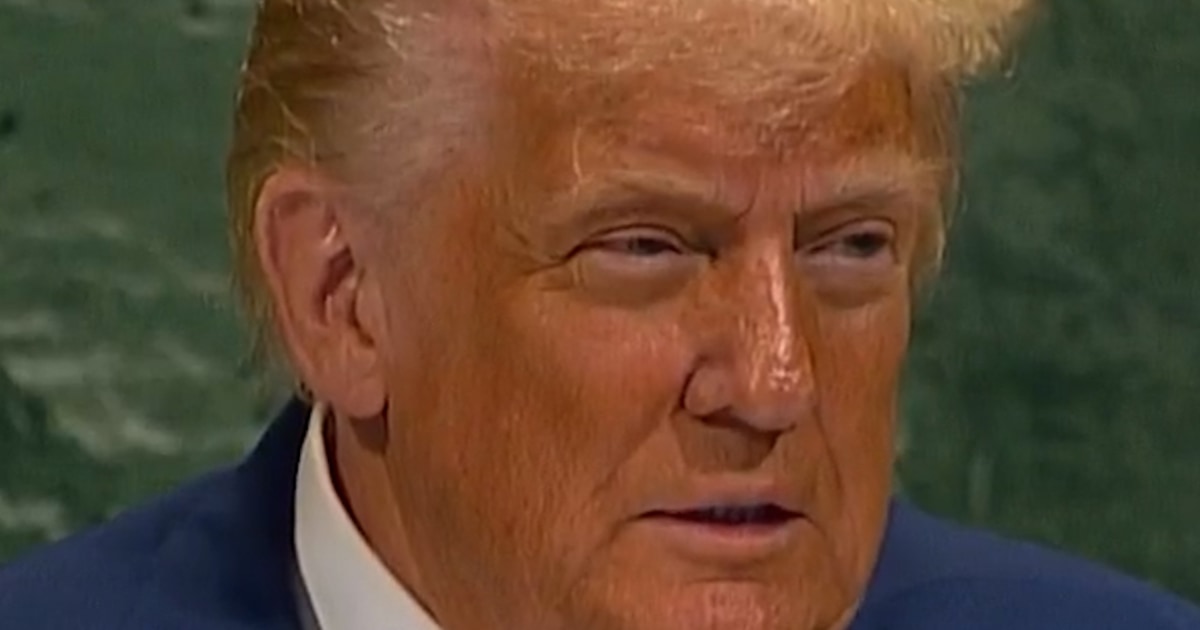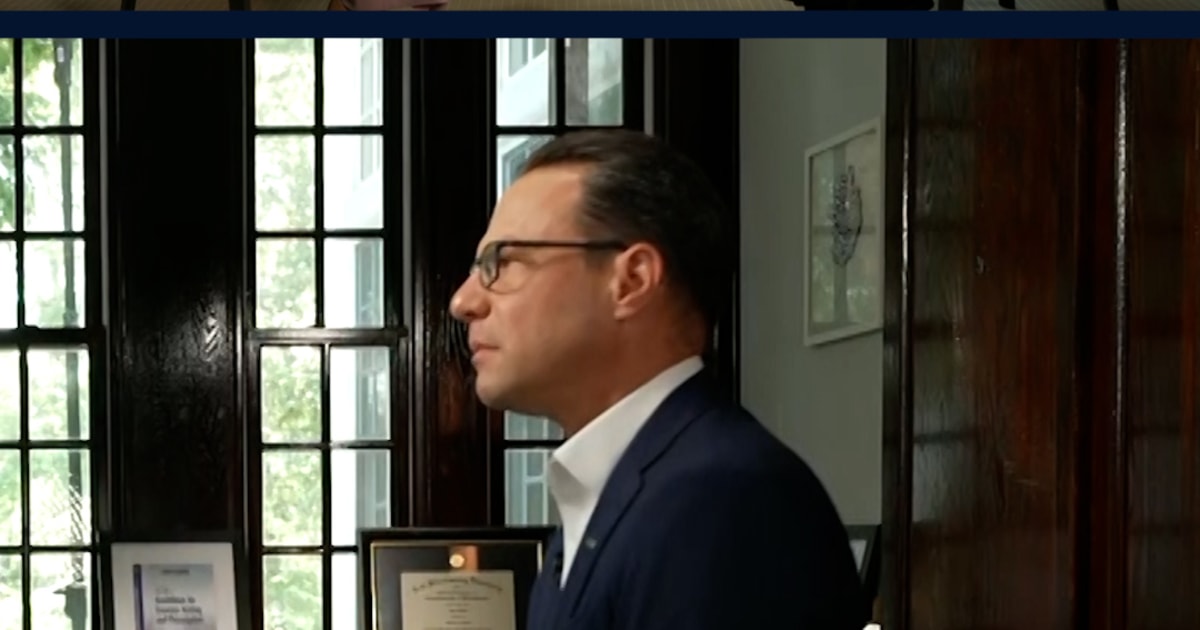Some of the internet’s most popular voices with young men — almost all of whom either hosted Trump or spoke highly — have some thoughts on what he’s doing wrong.
Source link
Savewith a NBCUniversal ProfileCreate your free profile or log in to save this articleOct. 5, 2025, 5:00 AM EDTBy Alexandra Marquez, Ben Kamisar and Jonathan AllenSome of the internet’s most popular voices with young men — almost all of whom either hosted President Donald Trump or spoke highly of him last November — have some thoughts on what he’s doing wrong.An all-star lineup of podcasters and YouTube impresarios has taken Trump to task in recent months on everything from immigration and Israel to free speech and Jeffrey Epstein. The list includes Joe Rogan, Theo Von, Andrew Schulz and Shawn Ryan, a cast that Trump courted heavily to win access to their audiences during last year’s campaign.Rogan and Von have been particularly critical of the Trump administration’s mass deportation agenda, with Rogan calling some deportations “f—–g crazy” and Von questioning why the Department of Homeland Security has posted videos of immigration arrests online.NBC News polling conducted in August and early September found that 33% of U.S. adults ages 18-29 approved of Trump’s handling of deportations and immigration, while 67% disapproved. Among U.S. adults of all ages, a slightly higher share — 43% — approved of the president’s handling of deportations and immigration. Schulz and his co-host, Akaash Singh, have criticized the president for not fulfilling his campaign promises.“Everything [Trump] campaigned on, I believed he wanted to do,” Schulz said in a July episode of his “Flagrant” podcast, where Trump had appeared in October 2024. “And now he’s doing the exact opposite thing of every single f—–g thing. … I voted for none of this. He’s doing the exact opposite of everything I voted for.”In particular, Schulz pointed to Trump’s failure to quickly end wars in Europe and the Middle East, the deficit spending in Trump’s budget, and the president’s deportation campaign.The White House did not return a request for comment.Theo Von slams DHS for using his video in post about deportations03:39While few of the these hosts — who tend to be less overtly political than explicitly conservative activists like the late Charlie Kirk — formally endorsed the president’s campaign, they gave him a platform to talk about sports, politics, technology, comedy and conspiracy theories with millions of viewers and listeners whose attention is usually hard for politicians to command. Republican and Democratic strategists alike have acknowledged that Trump’s willingness to engage with them helped give him a crucial boost in a hard-fought election.The recent disagreements threaten to swallow some of Trump’s support — potentially with the less politically active, harder-to-reach podcast listeners — even if it does not translate into a bigger chunk of the electorate for Democrats. Trump is ineligible to seek re-election, but Republicans hope to keep hold of the new voters who turned out for him as they battle in midterm elections next year and to maintain the presidency in 2028.During recent focus groups of 18-29-year-old Trump voters — observed by NBC News as part of the 2025 Deciders series, produced by Syracuse University and the research firms Engagious and Sago — a handful of voters said that people like Rogan and Von helped to persuade them to vote for Trump.Katelyn R., a 21-year-old Wisconsinite who identifies as a political independent, said during the focus group that Von “led me to vote” for Trump. She added that she had heard Von’s recent criticism of Trump and that she agrees with his “change of their point of view.”And while most members of the focus group said influencers aren’t changing their minds, they did echo similar criticisms in venting frustrations with Trump.“I don’t approve of how certain situations are being handled with deportation,” Katelyn R. added. “The way that these people are being treated don’t align with my Christian values, or my pro-life values, or any of the values that a conservative may have.”Richard B., a 22-year-old Republican from Pennsylvania, said he’s begun to question Trump’s fidelity to his campaign promises.“I feel like the transparency as well is an issue, not just with tariffs, but also feeling like he switched positions when talking about the Epstein files from saying it’s a huge deal to saying that ‘Oh, it’s not really a big deal,’” he said.Despite some cracks in Trump’s coalition of young men, Democrats acknowledge Trump’s continued strength — and their party’s weakness — among young men and the influencers they follow.“One thing I have seen is that there can sometimes be a connection between the fitness world and then getting into some of these podcasts and online spaces that can be very far right,” former Democratic Rep. Colin Allred, a former NFL player who ran for Senate in Texas last year and is running again in 2026, told NBC News. “And as someone who’s had to work out for a living and who still tries to stay in shape, that bothers me, because I know a lot of young men are going there genuinely hoping that they can get some advice on fitness.”“And then there’s a trust that’s built there, and then you can use that trust to then say, ‘Hey, but you should also think about, you know, why are women doing better than you are?’ I think that, to me, is really misleading and makes me a bit upset,” he added.Trump allies say that they are not concerned about differences of opinion among the voters who backed him last November.“President Trump successfully built a very big tent to be the first Republican to win the national popular vote in two decades,” said Nick Trainer, a GOP strategist who was a senior official on Trump’s 2020 campaign. “Inherently in a big tent, there are disagreements.”An NBC News Decision Desk poll powered by SurveyMonkey that was conducted in late August and early September found that 47% of men ages 18-29 “strongly” or “somewhat” approved of Trump’s job in office so far, while 53% of that group “strongly” or “somewhat” disapproved of Trump.Still, disappointment among young men, and the guys they listen to, could rob the GOP of a mechanism for turning out low-propensity voters who favor them.Late last month, Von, host of the popular YouTube show “Last Weekend” and the son of a Nicaraguan immigrant, ripped the Department of Homeland Security for using his image in an ad.“Yooo DHS i didnt approve to be used in this. I know you know my address so send a check,” Von wrote in a since-deleted post on X. “And please take this down and please keep me out of your ‘banger’ deportation videos. When it comes to immigration my thoughts and heart are alot more nuanced than this video allows. Bye!”Von went on to talk about the incident on his show last week, noting that the administration is paying attention to what he’s saying and that it was causing a backlash online.“I woke up the next morning to a text from a high government official saying, ‘Hey, if you need some extra security in your neighborhood, or some extra police cars on patrol, let me know,’” Von said. “And I’m like, ‘What? What are you talking about? Extra security? I don’t even know the code to my Ring camera.’ And then what are you going to do? What, are you just going to put police cars in my neighborhood? What are my neighbors going to think? … That really kind of shook me.”Rogan, who hosted Trump for a three-hour episode of his “Joe Rogan Experience” podcast in October and explicitly endorsed Trump days later, was one of the first podcasters to publicly break with the administration.In March, just two months after Trump was sworn in to his second term, Rogan reviewed several news reports about the U.S. deporting asylum-seekers to countries that they were not from, including one case of a gay makeup artist from Venezuela who was sent to a prison in El Salvador.“If you want compassionate people to be on board with you, you can’t deport gay hairdressers seeking asylum — that’s f—–g crazy — and then throw them in an El Salvador prison,” Rogan said.In July, Rogan again called it “f—–g crazy” that the Trump administration had detained Tufts University student Rümeysa Öztürk partially because of an editorial she had written calling on her university’s leadership to divest from companies with ties to Israel.Schulz and Von over the summer also broke with Trump over his administration’s moves to downplay the importance of the Epstein files, as well as over the administration’s continued support for Israel as it conducted its offensive in Gaza.“Obviously the intelligence community is trying to cover it up, obviously the Trump administration is trying to cover up,” Schulz said when talking about the Epstein files with his co-hosts in a July episode of “Flagrant.”“He is rebuking the base, like, almost spitting in their face. They are asking for it. He campaigned on it,” Schulz added.Meanwhile, Von’s May comments calling Israel’s attacks on Gaza a “genocide” garnered millions of views.A few weeks later, Von hosted Vice President JD Vance on his show and told him directly that the videos he was seeing from Gaza were “the sickest thing” and that “where it gets scary is that we give, you know, we’re complicit in it because we help fund, like, military stuff.”“Sometimes it feels like we look out for the interest of Israel before we look out for the interest of America,” Von added.The criticism from hosts hit a fever pitch in September when the president celebrated Disney’s decision to suspend late-night talk show host Jimmy Kimmel for remarks he made in the wake of Kirk’s assassination.“I definitely don’t think that the government should be involved ever in dictating what a comedian can or cannot say in a monologue. That’s f—–g crazy,” he said.He added that “people on the right” who were celebrating Disney’s decision were “crazy for supporting this, because this will be used on you.”Singh, the co-host of “Flagrant,” also denounced the move, saying that it was “a big attack on free speech” and criticizing conservative activists for celebrating Kimmel’s suspension.“I think we’ve been pretty staunchly in favor of free speech. And it is funny to watch right-wing people just become left-wing people. … If you agree with this, that’s some snowflake s—,” Singh added.Alexandra MarquezAlexandra Marquez is a politics reporter for NBC News.Ben KamisarBen Kamisar is a national political reporter for NBC NewsJonathan AllenJonathan Allen is a senior national politics reporter for NBC News.




